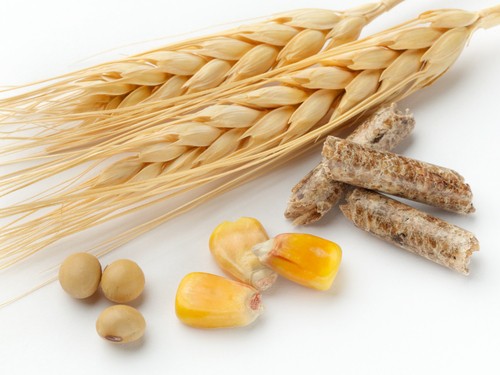Agriculture is an ever-important industry in the U.S. According to the U.S. Department of Agriculture, this sector and others related to it contributed $835 billion to the nation’s economy in 2014. Farms alone contributed $177.2 billion.
The U.S. is home to more than 300 million people, according to the Census Bureau. For the average household, 12.6 percent of their monthly budget is dedicated to food. But agriculture is more than just our nation’s produce, meat and dairy. Agriculture also lends a hand to adjacent industries like textiles, forestry, food services and drinking places, among many others. In 2014, the agriculture industry offered 17.3 million jobs, accounting for about 9.3 percent of all employment.
Beneficial research and development
Though this industry holds great importance to the nation, there are many obstacles it faces. Margaret M. Zeigler, the executive director of Global Harvest Initiative explained in an article for The Hill that there are numerous challenges to the industry, including:
- Persistent drought in agriculture-focused states like California
- Health- and nutrition-related issues
- Diseases that can affect livestock, poultry and crops
- Fewer people opting to study agricultural sciences
“Shell and tube heat exchangers ensure agricultural products are safe.”
However, she also pointed out increased research and development can lead to a more productive industry that is able to overcome these obstacles. Zeigler noted that it was research and development efforts that grew the agricultural industry’s productivity to the point it is now. From individual farmers seeking better ways to be more productive to large-scale efforts to find solutions that can accommodate a wide range of people in agriculture, research and development has been key in pushing the industry further and making it as productive as possible.
Shell and tube heat exchangers are critical to the ways the agriculture industry ensures its many goods are produced safely and quickly. They are heavily relied upon in the dairy industry, as well as the food, beverage and biodiesel industries.
Dairy, food and beverages
Generally, milks, cheeses, yogurts and other dairy products need to be pasteurized before they are available for purchase.
Raw milk has a reputation for spreading disease. According to the Centers for Disease Control and Prevention, unpasteurized milk is 150 times more likely to cause an outbreak of disease than its pasteurized counterpart.
Like dairy products, juices and ciders need to be pasteurized to ensure they are free of harmful bacteria and safe for consumption. Again, these foods are at risk of carrying bacteria that can lead to foodborne illness. To address this risk, the Food and Drug Administration published a rule in 2001 that required businesses to create and implement Juice Hazard Analysis and Critical Control Point systems. These systems follow specific rules about how to pasteurize various types of juices and purees made from fruits and vegetables.
Pasteurization, for any of these products, entails heating up the product to a high enough temperature that will kill off any harmful bacteria. For juices and purees, this temperature is between 160 and 180 degrees, depending on how long the pasteurization process lasts, according to Pennsylvania State University. The quicker the process, the higher the temperature needs to be. For instance, if a processor decides to heat the juice to 160 degrees, it would take at least six seconds for pasteurization, but only 0.3 seconds at 180 degrees.
Dairy products take much longer to pasteurize. According to Milk Facts, a batch of milk is usually heated to 145 degrees for 30 minutes, though depending on the dairy product and the length of time of pasteurization, the temperature varies.
Biofuels
Beyond producing food and beverages, the agriculture industry is also key in creating biofuels to use as alternative fuel options. According to the National Renewable Energy Laboratory, biofuels are primarily made of either biodiesel or ethanol.
“Shell and tube heat exchangers are used in the distillation of biofuels.”
Ethanol is made in a fermentation process using starches and sugars. However, industry professionals are working to find ways to use cellulose and hemicellulose in its production. Most plant matter is made of these fibrous materials. Biodiesel is made of a combination of methanol and a fat, like cooking grease or vegetable oil. Biodiesel is sometimes used to reduce vehicle emissions.
Shell and tube heat exchangers can be used in the distillation of these biofuels. According to Biodiesel Magazine, biofuels can be distilled to remove high sulfur content or to change the color of the product.
Research and development brought the agriculture industry these advancements and will bring many more. For information about how a shell and tube heat exchanger can better your business, contact the experts at Enerquip today.

